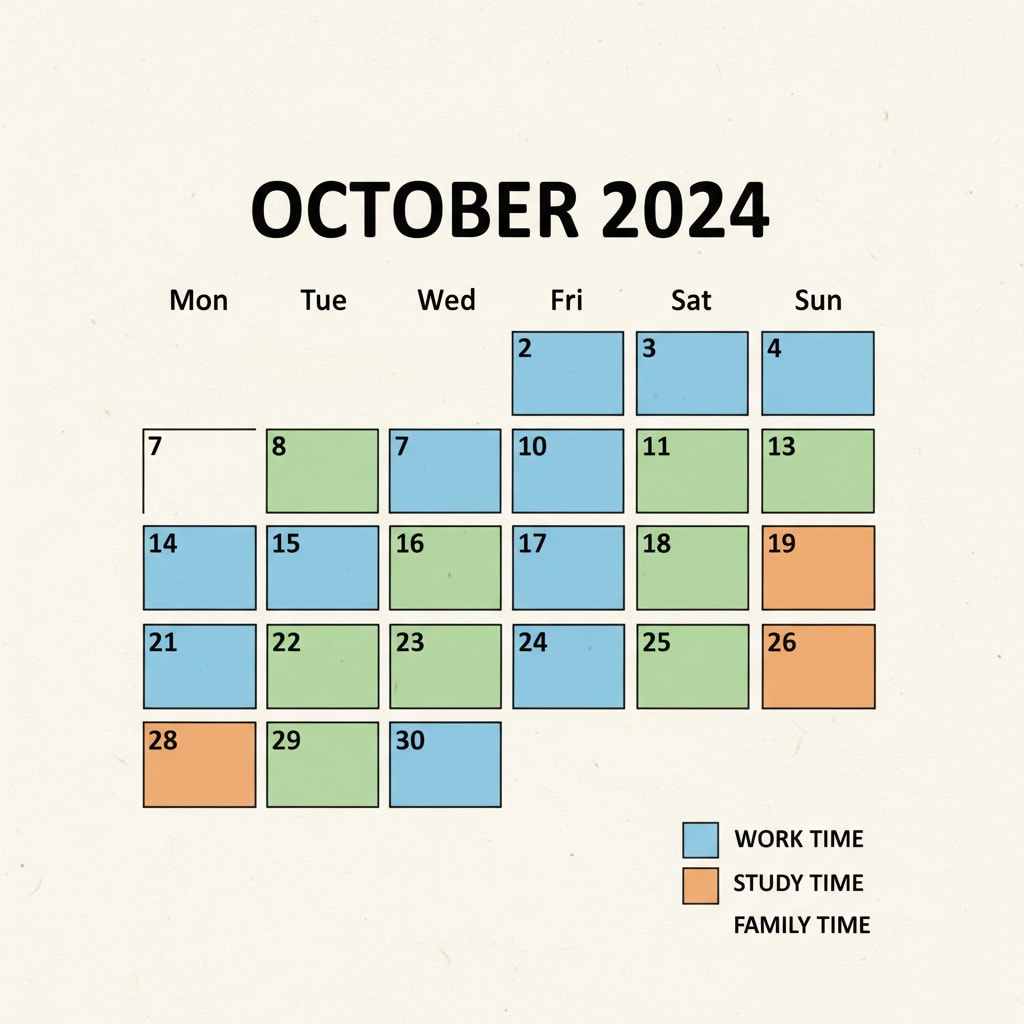Work-learning balance, time management, and life planning are essential skills in today’s challenging world. For K12 educators, the struggle to balance full-time work, further education, and family life is particularly real. In this article, we will explore how to navigate these demands and create a harmonious life.

The Challenge of Juggling Multiple Responsibilities
Modern life often presents us with a complex web of responsibilities. K12 educators, for example, are not only tasked with the daily grind of teaching but also have aspirations for professional growth through further education. At the same time, they want to maintain a fulfilling married life. This triple burden can be overwhelming, but with proper time management and life planning, it is possible to find equilibrium.
Effective Time Management Strategies
One of the keys to achieving work-learning balance is effective time management. Start by creating a detailed schedule. Allocate specific time slots for work, study, and family activities. For instance, set aside dedicated hours in the evenings for studying, and make sure to have quality family time on weekends. Tools like calendars and task managers can be invaluable in keeping track of your commitments. Time Management on Britannica

Integrating Work and Study
Finding synergy between work and study can make the balancing act easier. K12 educators can look for educational courses that are relevant to their teaching careers. This way, the knowledge gained from study can be directly applied to work, enhancing job performance. Additionally, some employers may offer support or flexibility for employees pursuing further education.
Nurturing Your Marriage in the Midst of Busyness
Marriage requires attention and effort, even when you’re swamped with work and study. Make a conscious effort to communicate openly with your partner about your schedule and commitments. Plan regular date nights or short getaways to strengthen your bond. Remember, a strong marital relationship can provide the emotional support needed to handle the stresses of work and study.
In conclusion, achieving work-learning balance, through effective time management and life planning, is possible. By being organized, finding connections between different aspects of your life, and prioritizing your relationships, you can create a fulfilling and harmonious life that encompasses full-time work, full-time studies, and a happy married life. Work-Life Balance on Wikipedia
Readability guidance: Use short paragraphs and lists to summarize key points. Provide a list under each H2小标题 where possible. Control the proportion of passive voice and long sentences. Incorporate transition words like however, therefore, in addition, for example, as a result throughout the text.


